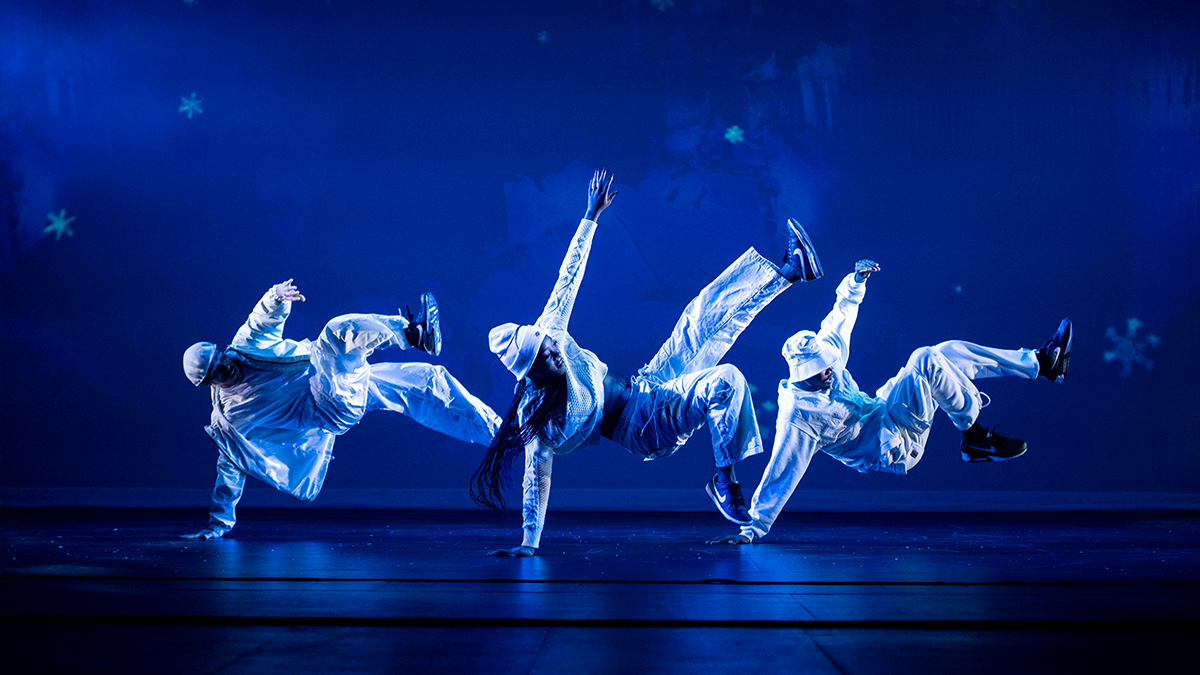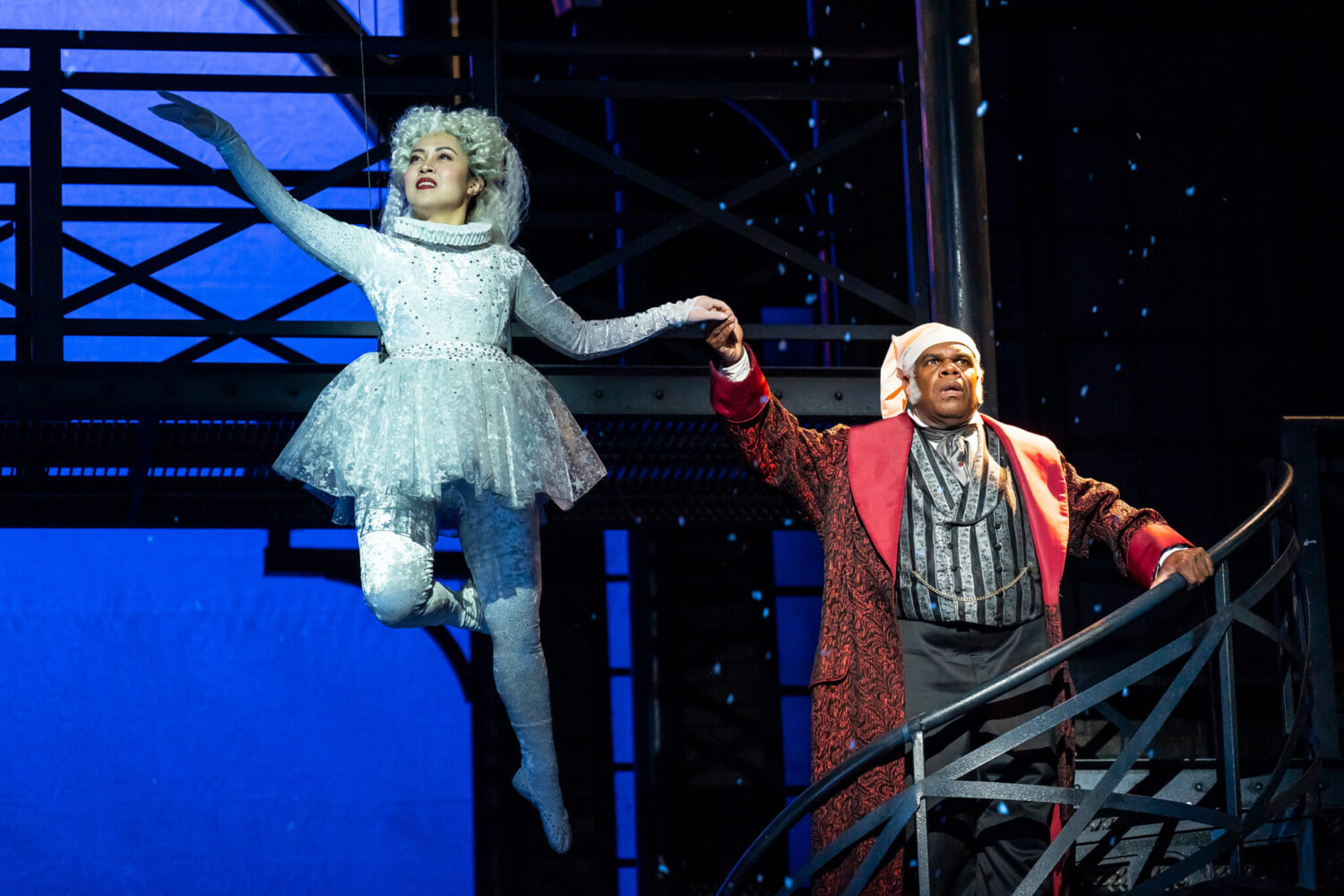
When Mitt Romney calmly told a heckler at the Iowa State Fair two years ago that “corporations
are people, my friend,” it was a moment that seemed to perfectly encapsulate the public’s
perception of him as an emotionless, immaculately coiffed hedge fund robot, delivered
unto America by God and the planet Greenback to restore order and grooming to a dangerously
messy, undisciplined society.
The nameless corporation featured in
Mike Bartlett’s
Contractions, however, is so tyrannical, so absurdly controlling, and so devoid of humanity that
it makes Bain Capital look like Amnesty International. Currently playing at Studio
Theatre through January 27, and directed by Bartlett’s friend and fellow Brit
Duncan Macmillan (author of Studio’s 2012 hit
Lungs),
Contractions opens innocently enough, with Emma (Alyssa Wilmoth-Keegan) being summoned into a meeting with her manager (Holly Twyford) to discuss the job she’s recently started at the company.
Both characters sport severe hairstyles, power heels, discreet jewelry, and airs of
breathtaking confidence, and exchange eye contact for such extended periods of time
that you can almost taste the testosterone. Emma holds her own, crossing her legs
and tackling intrusive questions about her personal life with aplomb, but alas, something
is rotten in this state of debriefing. Twyford’s manager, who’s seated in her chair
onstage from the minute the audience enters the room, never leaves the stage, inhabiting
the sterile white space through scene changes and constantly summoning Emma back in
to meet with her, greeting her each time with the drawled, “Ah, Emma. How’re things?”
Bartlett’s play is short—about an hour—but it manages to pay homage to a surprising
number of great plays, from the rampant careerism of Caryl Churchill’s
Top Girls to the surreal looping and rebooting of Samuel Beckett’s
Waiting for Godot. The enthralling power struggles played out between the gutsy Emma and her insanely
robotic boss feel quite brilliantly Pinteresque: There’s comedy in Twyford’s breathtakingly
audacious questions to her subordinate, which include asking exactly how good Emma’s
last sexual encounter was, and there’s menace in every pointed interaction between
the pair. Only once does Bartlett hint at why Emma might not run away screaming at
her earliest opportunity, when Twyford’s manager describes “the way things are” and
how Emma is exceedingly unlikely to find alternate employment.
Macmillan takes every opportunity to make the audience uncomfortable, from the screeching,
atonal soundtrack by
James Garver that plays before the show even begins to the rattling, rustling sounds and moody
lighting that punctuate scenes, tweaking sounds of photocopiers and fax machines so
they start to sound like instruments of torture. The costumes by
Brandee Mathies amplify the physical comedy of it all—each time Emma enters the room she sports a
different color blouse, and as her status rises and falls, so does the height of her
heels.
Macmillan also has two extremely adept actors on his hand. Twyford is so unshakably
soulless as Emma’s manager that she could make a line of HTML code look positively
histrionic. The tempo and tone of her voice is precisely controlled, managing to reproduce
the exact same inflection of her greeting at the start of every scene. During the
show’s most startling and absurd moments, Twyford remains utterly blank, and yet she
exudes intimidation without moving a single facial muscle. Even the character’s walk
from one side of the set to the other, clumsy in six-inch stilettos, feels threatening.
As Emma, Wilmoth-Keegan has to run the gamut of emotional states from her poised self-assurance
at the beginning of the play to her inevitable transformation. She does a remarkable
job, managing to appear as human as Twyford seems automated. As the play proceeds
and things degenerate from satirical to absurd, the audience’s empathy with Emma reminds
us constantly that this state of totalitarian corporate control is only a breath or
two away from mandated drug tests and HR-monitored e-mail accounts. Bartlett’s universe
is terrifying in its drone-like insistence on rules, but the most terrifying thing
of all is that it isn’t entirely outside of the realm of plausibility.
Contractions
is at Studio Theatre’s 2ndStage through January 27. Running time is one hour, with
no intermission. Tickets ($30 to $35) are available via Studio’s website.















